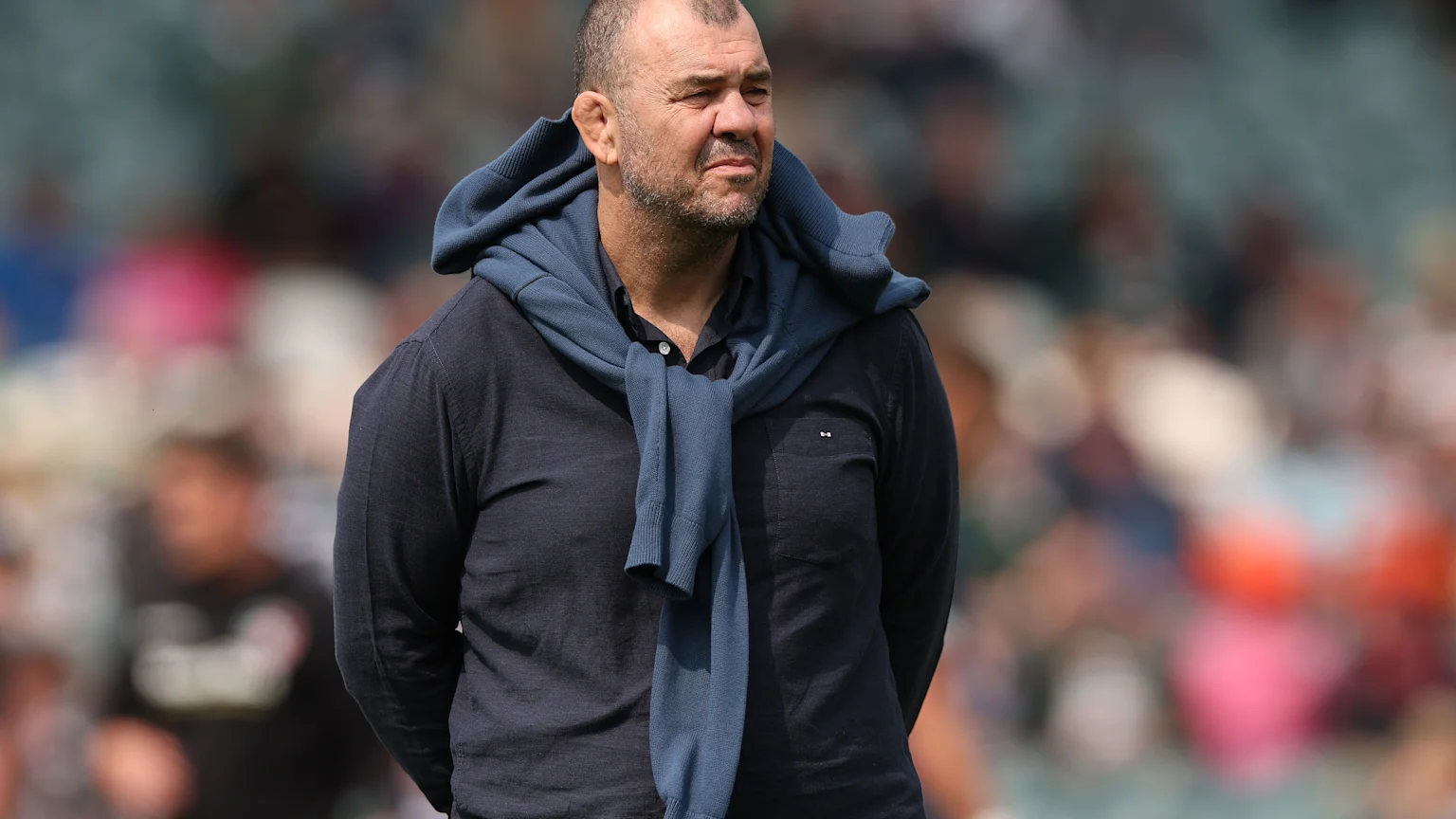Sport
'Not the Coach's Fault' - Michael Cheika Reveals Why Wallabies Job is So Brutal

Published by Lachlan Waugh
02 Aug 2025
Coaching the Wallabies is no walk in the park. From daunting international clashes, to a player pool and governing body that draws scrutiny, it could be seen as the toughest job in world rugby.
Australia is a nation steeped in rugby history (let’s not forget they were the first to win the Rugby World Cup twice), and with that comes expectations. But for a good 10 years now, the men’s national side has been a shell of its former self, and slipped further from excellence and closer to mediocrity. Why?
Michael Cheika, who served as Wallabies head coach from 2014 to 2019, unpacks the layers of complexity in managing the sport on and off the field, in an honest conversation with Martin Devlin on the DSPN.
Cheika was asked why coaches struggle for results in the Wallabies job.
“You are coaching the players that come out of the system, and the competition that's been built, or the economy of the game.”
Dave Rennie, Eddie Jones and Ewen McKenzie – along with Cheika, Deans and Schmidt – have all held the top job at different points since 2008, and all have for the most part failed.
The pinnacle of Cheika’s time at the helm was undoubtedly guiding the Wallabies to the 2015 Rugby World Cup final. Things though slowly declined after that, and the Aussies were bounced out of the quarter-finals four years later, in pretty embarrassing fashion against England – Cheika’s last match in charge.
The now 58-year-old from Sydney says there is a balancing act around selecting players based in Australia and overseas, and building a competitive team. By contrast, the All Blacks coaches and selectors can only pick players based in New Zealand.
International rugby’s calendar and the growing strength of Ireland and Scotland, along with traditional powers like New Zealand, South Africa and England, mean depth is as important as a strong starting 15.
“The Australian teams that go out and play test footy are always trying to do their absolute best for the country,” Cheika said.
“It’s just they’ve had inconsistency, probably because of how the team’s been built from the competitions they’ve been playing in, and the pathways the players are being delivered from.”
Asked if Australia would be a better rugby nation if the NRL and AFL didn’t exist, Cheika was comical in his response.
“Yeah, but I could say if I went to a different school, I could be running Amazon.
“It doesn't matter... all those things don't count. You could go to the contrary as well and say because we've got league and the AFL, we've got better players… [Australians] growing up playing both games, learning the skills of both games can help.
“I don't think anyone's looking for an excuse… I just think we've got to deal with the scenarios that we have now.”
Cheika likes what he saw from the Wallabies in the second British & Irish Lions test and, despite the result and the series already being won by the visitors, he feels there’s plenty of value in trying to win the third clash in Sydney.
“This is a hugely important week I feel for them to try and win the game,” he said. “That consistency of delivering back-to-back… that will give them a lot of confidence.”
Catch new episodes of the Devlin Sports Podcast Network (DSPN) every weekday on rova.
Published by Lachlan Waugh
02 Aug 2025